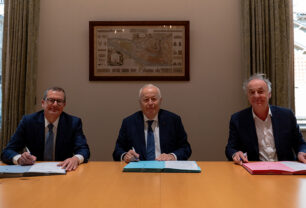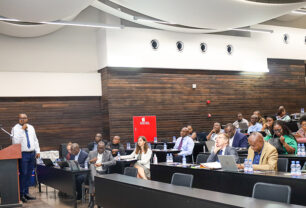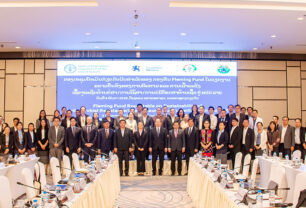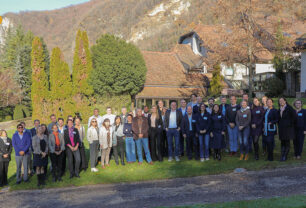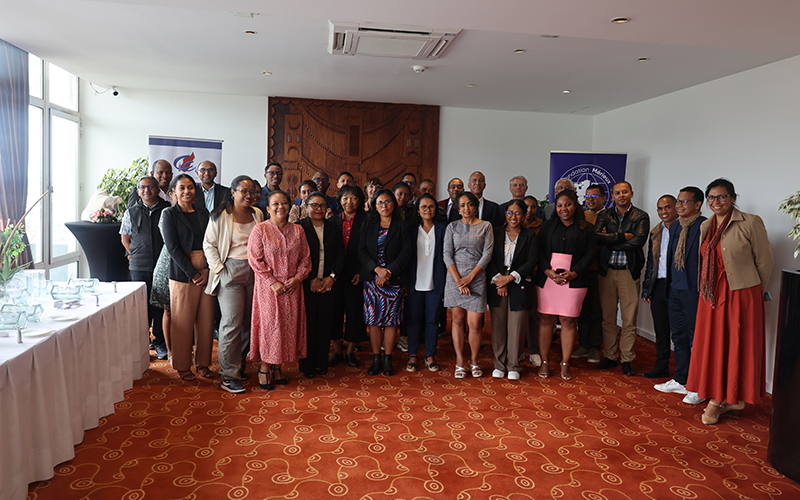
An ambitious, pivotal One Health project
Launched in June 2020, the TRIuMPH project aimed to adapt and extend the Tricycle protocol on a national scale to achieve integrated AMR surveillance. Using simplified, harmonized methods, the project focused on Escherichia coli as an indicator species for multidrug-resistant bacteria. Found in human health, animal health, and the environment, E. coli made it possible to evaluate the circulation of AMR consistently through all three pillars of the One Health concept. The improvements to the Tricycle protocol also included a search for carbapenemase-producing enterobacteriaceae (CPE) in all three sectors.
Key results from the tripartite national surveillance
The results presented highlighted a worrying level of circulation of ESBL E. coli in all the sectors studied:
- 8% of pregnant women were carriers;
- 1% positivity rate in commercial poultry farms;
- Constant presence in wastewater, rivers, and abattoirs.
Strains of CPE were detected in all environments, confirming the intersectoral dissemination of genes for resistance.
Towards a sustainable, long-term surveillance system
The discussions and round-table sessions moderated by Professor Luc Samison, Director of the Charles Mérieux Center for Infectious Disease, emphasized the importance of capitalizing on the project’s achievements to integrate AMR surveillance into the routine operations of Madagascan laboratories. Several strong recommendations arose from these discussions:
- Continuing with the Tricycle/TRIuMPH tools as a national warning system.
- Developing a national platform for AMR data involving all stakeholders (health, farming, environment).
- Strengthening laboratory capacity in terms of both human resources and equipment, together with supplies of consumables and reagents.
- Involving political decision-makers from the project design stage to encourage appropriation and integration into public policy.
Dr. Rakotomalala, a veterinarian at the Ministry of Agriculture and Livestock, underlined the concrete impact of the TRIuMPH workshop on the fight against AMR in Madagascar: “The reporting workshop for the TRIuMPH project has strengthened the fight against AMR in Madagascar by enabling vital discussions between stakeholders, particularly in the veterinary sector. This sharing of experience means we can take inspiration from other practices, discuss them, and consider concrete improvements to our approaches.”
Professor Luc Samison, Director of the Charles Mérieux Center for Infectious Disease, praised the intersectoral approach to the fight against antimicrobial resistance (AMR) in Madagascar: “I want to emphasize the unifying aspect of this workshop, with participants representing different focal points in the fight against AMR in Madagascar, including from the Ministry of Water, Sanitation, and Hygiene, the Ministry of Environment and Sustainable Development and the Ministry of Agriculture and Livestock. The Studies, Planning, and Information System Department of the Ministry of Public Health was also present, not to mention other research institution partners such as the Institut Pasteur de Madagascar, regional hospitals, Madagascar’s learned societies, and many other contributors. All agreed on the need to reinforce surveillance and research into AMR to control its spread. The Charles Mérieux Center for Infectious Disease remains open to any future collaboration and is committed to helping government ministries in the fight against this silent pandemic.”
About the TRIuMPH project
The TRIuMPH project arose from an international partnership involving public health institutions, research laboratories, and training centers in Madagascar, the Netherlands, France, Malaysia, and Pakistan. It has received support from major funding organizations, including the Swedish International Development Cooperation Agency (Sida), which financed the JPIAMR program behind the project in Madagascar.
The project also benefited from the commitment of key scientific and academic partners, such as the Mérieux Foundation, Paris Cité University, Utrecht University, the Institute for Medical Research, Malaysia, the National Institute for Public Health and the Environment (Netherlands), Inserm, and the RESAMAD network. Alongside them, many other institutions committed to public health contributed to a collective effort based on an integrated One Health approach.
By taking a simplified, integrated approach to antimicrobial resistance surveillance, TRIuMPH demonstrated the feasibility of a transferable, sustainable, intersectoral model for national public health policies.


